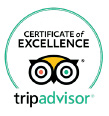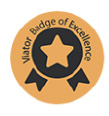The palaestra is the ground or grounds in ancient Olympia where “pali” (“wrestling”) was taught and performed for training purposes, i.e. “wrestling-school”. Two other martial arts were taught there: Greek πυγμή (pygme), Latin pugnus, "fist, boxing," and Greek παγκράτιον, Latin pancration or pancratium, "any method," which was free-style, or hand-to-hand, including grappling, kicking, punching, or any unarmed method whatever, no holds barred. The latter was sometimes deadly, or disfiguring (with permission), which indicates that the arts were ephebic, or "soldier" training for prospective citizens of the city-state sponsoring the school, such as Elis, but here combined with prospective candidacy for contention in the games. Be that as it may, none of the games were conducted without rules, umpires, and judges, who did not hesitate to stop contests, fine contenders within some cases amounts prohibiting future participation, or bar flagrant violators.





